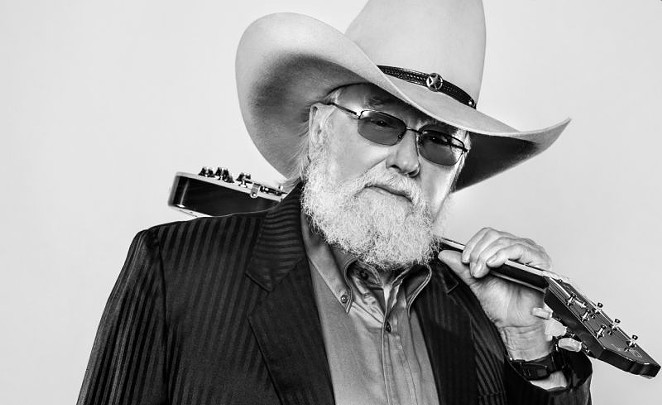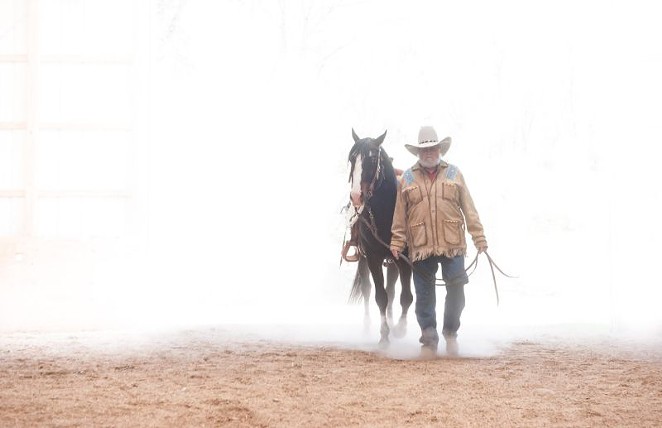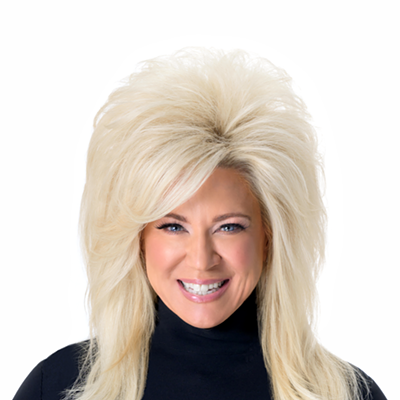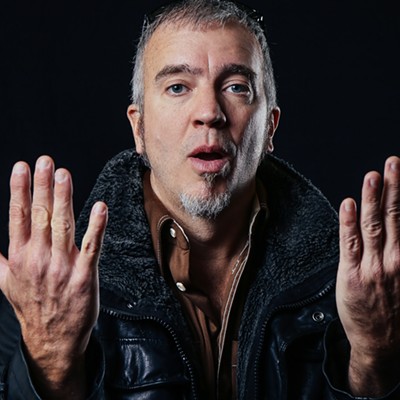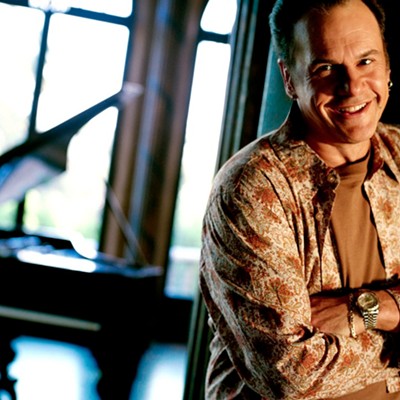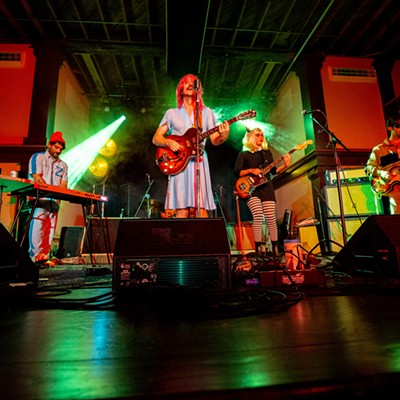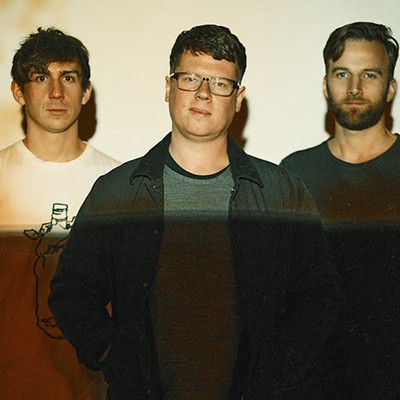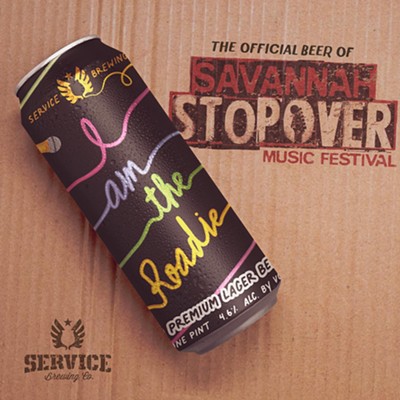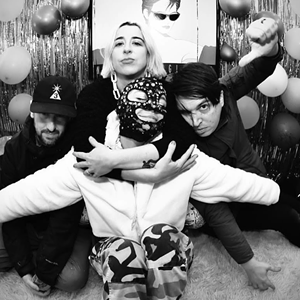81-YEAR-OLD Charlie Daniels shows no signs of stopping.
The country and Southern Rock legend’s career has grown steadily over the years. With a start as a Nashville session player, contributing to the music of Bob Dylan, Leonard Cohen, and Marshall Tucker Band, Daniels didn’t “go solo” until he was 35 years old, releasing his debut album in 1971. Four years later, the talented player earned a top 30 hit with the song “The South’s Gonna Do It Again.”
All the while, Daniels was still lending out his talents, performing on albums by Hank Williams, Jr. and others before winning a Grammy Award for Best Country Vocal Performance for “The Devil Went Down to Georgia.”
The now-classic was a crossover hit, marked by Daniels’ signature fiery fiddle solo and the classic tale of young Johnny outplaying the Devil himself.
The Charlie Daniels Band celebrates 45 years together in 2017, and Daniels has shared a highly-anticipated memoir, Never Look at the Empty Seats. We spoke with Daniels about his writing process, listening to the Grand Ole Opry—into which he’d later be inducted—as a young boy, and his proudest moments as a musician.
Congratulations on the release of your memoir. Why is it the right moment to tell your story?
It was a long time in the making, I just finally got it done. I worked on it for somewhere around 20 years, but I couldn’t find a place to stop it. I wasn’t invited to The Grand Ole Opry until my 70s! Good things kept happening, I kept writing. When I was told I was being inducted into the Country Music Hall of Fame, I thought, that’s a great place to polish this off. It’s from my earliest memories to the Country Music Hall of Fame induction.
What was your process? Were you dictating, were you writing on tour?
I wrote it all out, I even got into computers. I wrote a lot of it out, but I can’t read my longhand—I have to print it out and get somebody to transcribe it for me. I took a little typing in school, I know keyboards and word processing, so I got into doing it that way. It took me a long time to get it in the position of a book rather than a bunch of notes. I couldn’t find a place to pause it, but once we got the news about the Opry, I knew it was good enough for pausing.
You’re a big reader—were you inspired by other music memoirs, autobiographies...?
Not really—it’s just the story of my life as I remember it. It’s my earliest remembrances from the last 80 years.
What’s your earliest music memory?
Listening to the Grand Ole Opry on the radio, which we did every Saturday night—everybody in the neighborhood listened to the Opry on Saturday night. It came in on a local radio station, and that’s what you did—gather around the radio the way they gather around the TV now, and on Monday morning, people could tell you what song so-and-so sang, what joke Minnie Pearl said. It was a cultural thing in my part of the country.
Was there a particular Opry performance that was influential or memorable to you?
Roy Acuff, who was one of my very early influences and one of my heroes. And Hank Williams, too.
You’ve included a lot of advice for young musicians in the book. Aside from the title, is there a key piece of advice you wanted to share?
As I go along, I just mentioned some mistakes that I have made and I put in the book. There’s no yellow brick road—it’s you and your talent getting out there and getting with it. And though there’s no yellow brick road, there are some absolute somethings that are common mistakes that young musicians tend to make. I pointed some of those out to save some people some mistakes, if they’re inclined to listen.
You shared an accompanying CD. How did you select the songs for that?
They’re selected kind of chronologically, or as close as we could. The first record I ever made in 1959 is on there, but we tried to come up with songs that would kind of signify the different times in my career. For the part of the book about 1975, we tried to find something from there, from the pertinent areas of my career.
The Country Music Hall of Fame induction was the endcap for the book. What did that induction mean to you personally?
I have yet to come up with the word or series of words or whatever that articulates the depth of the honor that I feel being one of three people that were chosen that year to become a member of the Hall of Fame. It’s hard to put together...it was so unexpected, it was so absolutely incredible. I just can’t put into words. You can use any adjective you want that is synonymous with wonderful and great, but of all the things I’ve said still don’t do it justice.
The band’s celebrating 45 years together. How are you celebrating?
We’re going to do another 45 years! We’re a pretty businesslike outfit. I’ve kept 25 people gainfully and steadily employed for 40 years, and a lot of them are still with me. We have an insurance program, a 401k program...our eyes are on longevity. One of my people asked me my greatest accomplishment recently, and I said that I’m most grateful that.
Working on the memoir, going through your catalog of songs and looking back at your career—has that impacted the way you're writing and what you're working on in the future?
Not really. I lived all this, and of course, I didn't do the book in a short amount of time. It was an elongated amount of time, so I absorbed it as I went along. Nothing was really shocking to me—I had some very pleasant memories and some not-so-pleasant memories, but not anything that really shook me up or nothing.
So, with y'all coming back to Georgia, gotta ask—the "Devil Went Down To Georgia" number has been a staple of the Stone Mountain laser show for years. Have you seen it yourself?
Yes! We played Stone Mountain...it's been a little while now. But it went on for many years and I didn't see it, but people told me about it. I'm glad it's still going on...with all the political correctness going on, who knows how long it'll last anymore.

